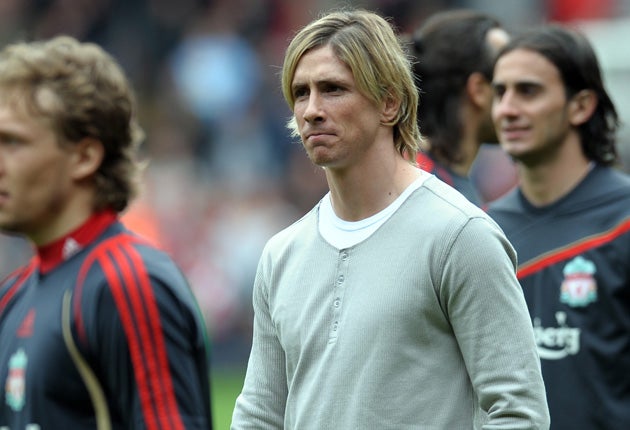A crisis that will haunt Liverpool for a generation

Your support helps us to tell the story
From reproductive rights to climate change to Big Tech, The Independent is on the ground when the story is developing. Whether it's investigating the financials of Elon Musk's pro-Trump PAC or producing our latest documentary, 'The A Word', which shines a light on the American women fighting for reproductive rights, we know how important it is to parse out the facts from the messaging.
At such a critical moment in US history, we need reporters on the ground. Your donation allows us to keep sending journalists to speak to both sides of the story.
The Independent is trusted by Americans across the entire political spectrum. And unlike many other quality news outlets, we choose not to lock Americans out of our reporting and analysis with paywalls. We believe quality journalism should be available to everyone, paid for by those who can afford it.
Your support makes all the difference.Martin O'Neill's comments after Manchester City beat his side on Saturday and took a step towards the Champions League were as ominous for Liverpool as for Aston Villa. "Even if they don't make the Champions League, Manchester City will get stronger again and keeping up with them is going to be hard," he said.
Liverpool can trade on their fans and their blue-chip reputation for only so long. If City win what is effectively a Champions League eliminator against Tottenham tomorrow, it will pave the way for a summer of spending that should render their place in the elite tournament a certainty for some years to come. Liverpool, meanwhile, face the risk of four, five seasons – a generation – without a place at the continent's top table. It is why the pursuit of a new owner this summer is an issue of far greater significance than the career intentions of Rafael Benitez.
The club's managing director, Christian Purslow, thought he had found a way to stabilise the listing club: by securing a group of new equity partners whose money would keep the bank happy and smooth the way to capital needed to build a new stadium, which would send match-day revenues soaring. It is known as the "facility model" in football.
The problem was the prospective new partners understandably wanted some say over how the club might be run, and the owners, George Gillett and Tom Hicks, would not tolerate that. They sent the club back to square one and hired non-executive chairman Martin Broughton and Barclays Capital to find someone to buy them out entirely. The Americans have a track record of demanding an unrealistic price for their club, though: the £500m Dubai International Capital was quoted a few years back is a case in point.
But now the Americans' Armageddon is here. The merchant bankers who have been trying to sell Liverpool for months have insisted all along that investors would simply sit tight, wait until the club failed to qualify for next season's Champions League (thus taking a critical £20m hit), and make their bid when the Americans needed to sell in a hurry. That has happened now.
Signs that the crown jewel, Fernando Torres, is unwilling to tolerate much more of this chaos might just be the tipping point that forces them to forgo the idea of a tasty profit, dispose of the club at a realistic price – £300m might be the best they'll get – and walk away. The consequences of clinging on are a haemorrhaging of players and years in the wilderness.
The merits of a diplomatic stance with Benitez in the meantime are considerable, despite any irritation felt by the Anfield hierarchy at his use of a move to Juventus as a stick to beat the club with. With Benitez around, Torres might just be persuaded to stay a little longer, and Javier Mascherano might just sign a new contract. Without Benitez, neither of the above applies. The next manager might be one of O'Neill, under whom Aston Villa have barely advanced in the past three years, despite money; Roy Hodgson, whose only big job in England was at Blackburn, involved a £20m outlay in the summer of 1998 and his departure by Christmas of that year, with the club bottom of the table; or Kenny Dalglish, who hasn't managed for 12 years.
If Liverpool really want an British manager then Mark Hughes, whose reputation is by no means diminished after his Manchester City experience, would be a good proposition if the Manchester United connection could be overcome. But would he want to walk into financial turmoil? Holding on to Benitez and finding a buyer and a place at the top table might not be such a forlorn hope.
Join our commenting forum
Join thought-provoking conversations, follow other Independent readers and see their replies
Comments